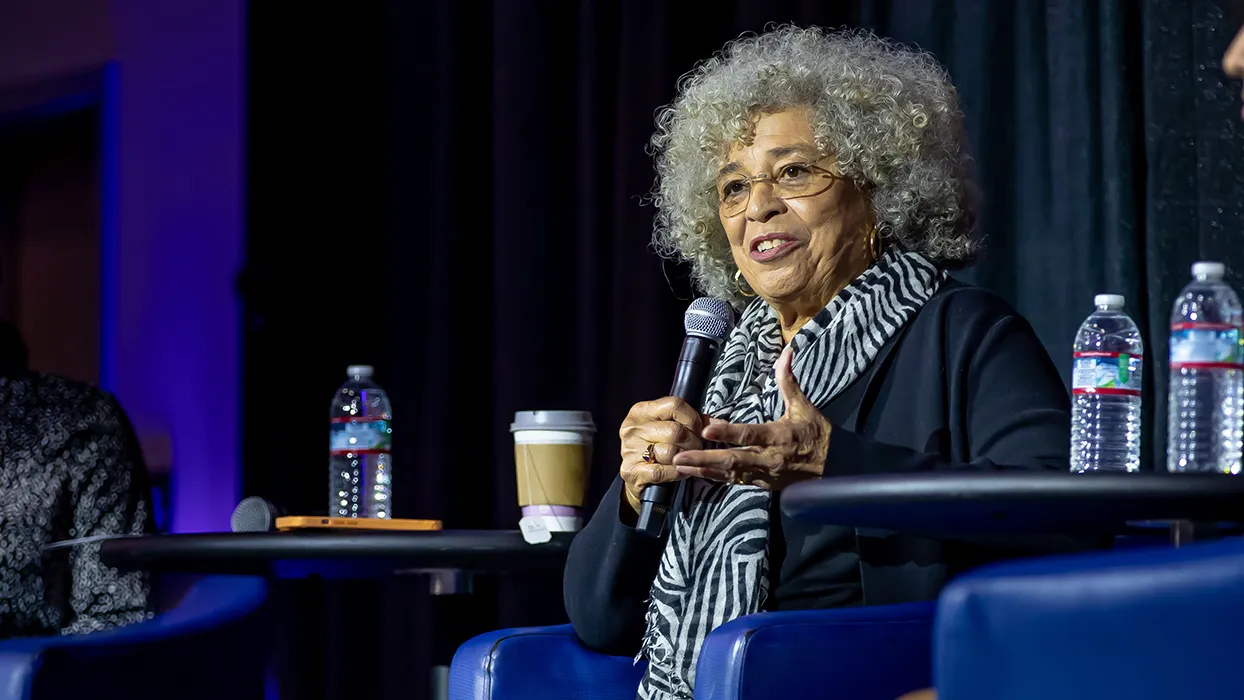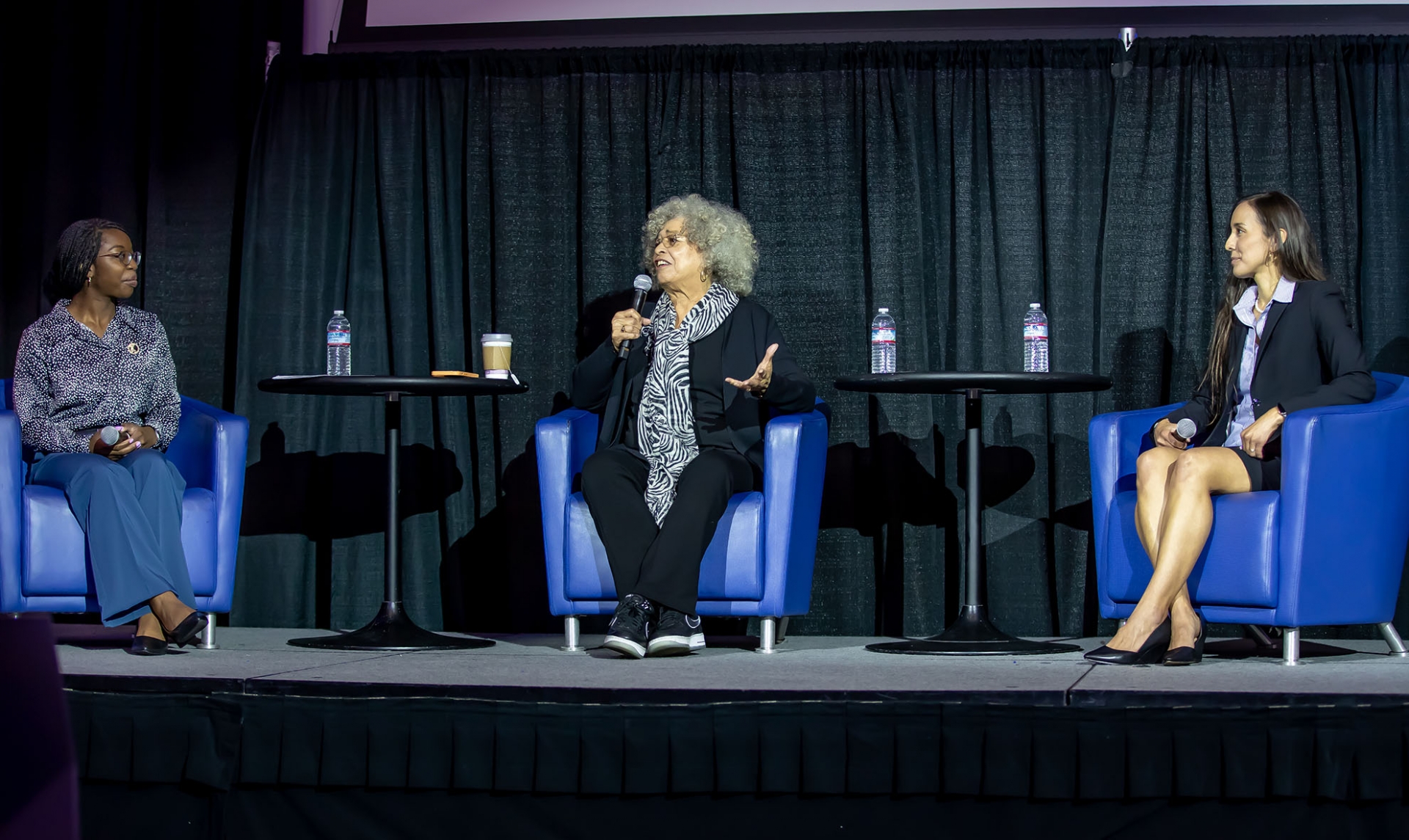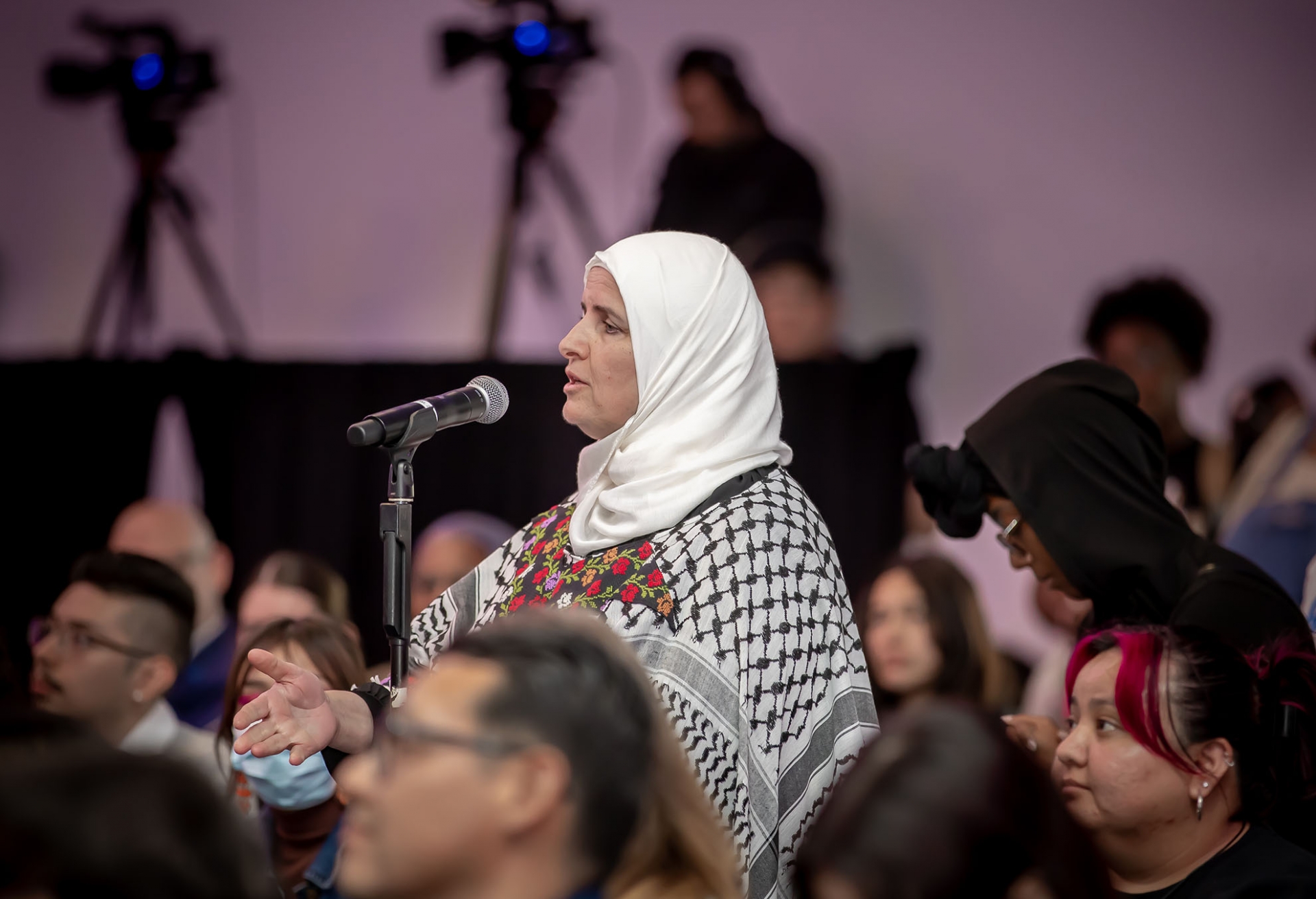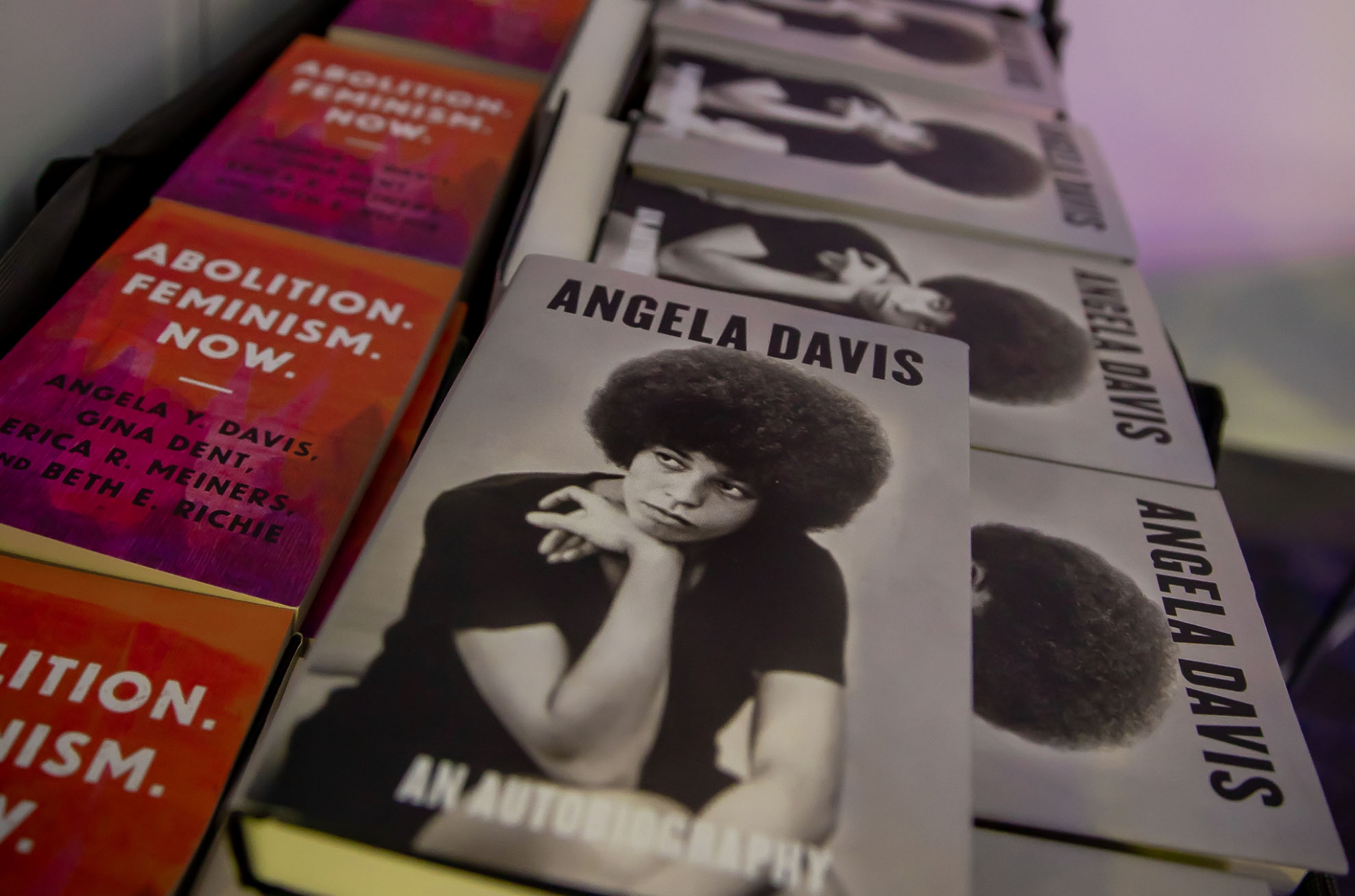Joe Gutierrez | CSUSB Office of Strategic Communication | (909) 537-5007 | joeg@csusb.edu

The Cal State San Bernardino and local community gathered in the Santos Manuel Student Union (SMSU) North and virtually on Zoom to listen to the thoughts and experiences of Angela Davis, American political activist, philosopher, academic and author.
Topics during the April 17 event were wide ranging: feminism, intersectionality, social justice, environmentalism and racism were all discussed through a discussion moderated by Angie Otiniano Verissimo, CSUSB associate professor of health science and human ecology, and Alexandra Thambi, biology major and chair of the SMSU board of directors.
“I like to construct feminism as broadly as possible. But at the same time, I like to be specific. … I say this because there was a time I did not identify with feminism,” Davis said, noting that when she published a book called “Women, Race and Class,” people started referring to her as a feminist. “I was writing about Black women, women of color. And my response was, ‘I’m not a feminist. I am a revolutionary Black woman.’”
Davis said she had initially associated feminism with middle-class women and white women.
“But what I want to say to you this afternoon is that working class women, women of color from many different ethnic and national backgrounds have helped to shape feminism,” she said.
The term most linked to feminism, she said, is intersectionality.
“(That term) came largely from women of color, radical women of color and also working-class white women who wanted to think about feminism as connected to the transformation of our social, economic and political worlds,” she said. “So, when I say I want to think broadly, I want to be very inclusive, but at the same time, I want to insist that the feminism that is most valuable is the feminism that is anti-racist. And the feminism that is anti-capitalist. And the feminism that is internationalist.”
The audience erupted in applause.

“I tend not to want to pull one issue out and just say, ‘This is the most important,’” she clarified. “Because I think feminism methodologies urge us to grasp, to apprehend relationships, relationalities. That’s what intersectionality is about. It’s about recognizing that one cannot fully understand what gender means without taking race into consideration. One can’t understand race without taking gender into consideration.”
Davis said that if she was compelled to choose one issue, it would be the environment, noting the need to rescue the earth from “the onslaught of the billionaire capitalists who see profit as more important than saving the plants and saving the animals,” which includes humans.
“If we can’t save the earth, then none of the work we are doing around justice for workers, justice for women, and gender nonconforming people, justice for trans people, none of that will matter,” she said. “So, let’s keep that in mind. I always like to talk about the environmental movement and environmental justice as ground zero of social justice. If we can’t achieve that, then none of our progress in other areas will ultimately be significant.”
Davis said her motivation stems from her family, including her mother and her mother’s best friend, and the many people she has connected with over the years.
“I know a lot of people who have devoted their entire lives to struggles to make life more livable for all of us,” she said. “So, I guess am motivated by that. And the fact is I don’t know how to be any different. I wouldn’t know how to live if I weren’t also attempting to help make the planet a better place.”
Students, faculty and members from the community, including Ben Reynoso, councilmember for the city of San Bernardino, participated in the question-and-answer session, which introduced a wide variety of topics of discussion, including afro-pessimism, voting and the Palestinian struggle.

Following the discussion, a book signing with Davis was held in the SMSU South Fourplex.
This was Davis’ second visit to CSUSB. She last spoke on campus in February 2010 at an event hosted by the Women’s Resource Center, which was attended by more than 700 students and guests.
Through her activism and scholarship over many decades, Davis has been deeply involved in movements for social justice around the world. Her work as an educator – both at the university level and in the larger public sphere – has always emphasized the importance of building communities of struggle for economic, racial and gender justice.
Davis’ teaching career has taken her to San Francisco State University, Mills College and UC Berkeley. She also has taught at UCLA, Vassar, Syracuse University, the Claremont Colleges and Stanford University. Most recently she spent 15 years at the University of California, Santa Cruz, where she is now Distinguished Professor Emerita of History of Consciousness – an interdisciplinary Ph.D. program – and of Feminist Studies.
Davis is the author of 10 books and has lectured throughout the United States as well as in Europe, Africa, Asia, Australia and South America. In recent years a persistent theme of her work has been the range of social problems associated with incarceration and the generalized criminalization of those communities that are most affected by poverty and racial discrimination.
She draws upon her own experiences in the early ’70s as a person who spent 18 months in jail and on trial (she was acquitted by a jury), after being placed on the FBI’s “Ten Most Wanted List.” She also has conducted extensive research on numerous issues related to race, gender and imprisonment.
Her books include “Abolition Democracy” and “Are Prisons Obsolete?,” and two books of essays entitled “The Meaning of Freedom” and “Freedom Is a Constant Struggle: Ferguson, Palestine, and the Foundations of a Movement.” Her most recent books include a re-issue of “Angela Davis: An Autobiography and Abolition. Feminism. Now.,” with co-authors Gina Dent, Erica Meiners and Beth Richie.
Twice a vice presidential candidate on the Communist Party USA ticket, Davis is a founding member of Critical Resistance, a national organization dedicated to the dismantling of the prison industrial complex. Internationally, she is affiliated with Sisters Inside, an abolitionist organization based in Queensland, Australia, that works in solidarity with women in prison.
Like many educators, Davis is especially concerned with the general tendency to devote more resources and attention to the prison system than to educational institutions. Having helped to popularize the notion of a “prison industrial complex,” she now urges her audiences to think seriously about the future possibility of a world without prisons and to help forge a 21st century abolitionist movement.
